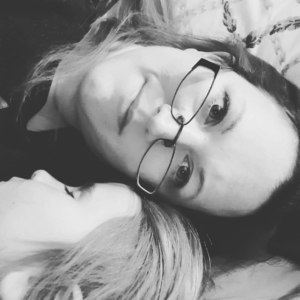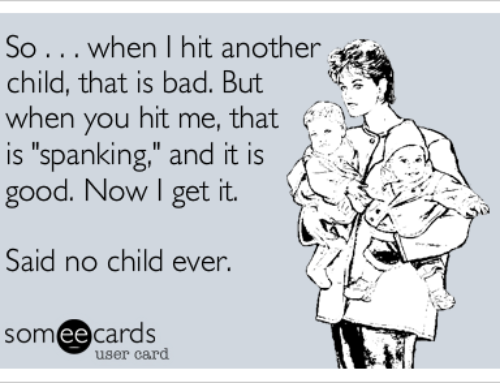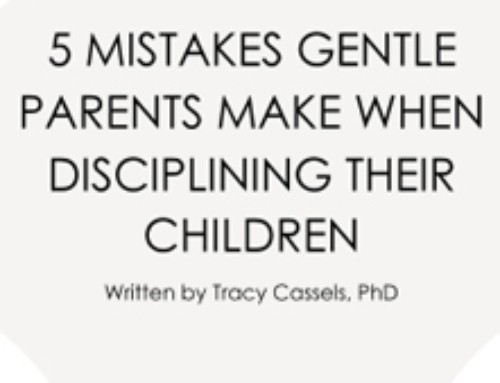
A while ago I shared the following story on Facebook with the image above:
The moment of repair.
I f*cked up.
My son happily spent time making his own “icing” and when done decided he wasn’t so thrilled with it. So I asked if he wanted to keep it to show dad. He said no even though I don’t think he was really listening, and against my better judgement, I immediately put it in the compost.
A minute later, he had changed his mind.
I had to admit I’d already thrown it out.
The anguish on his face. The tears. The screaming. Then the running away to our bedroom.
I ran after, nearly crying myself.
There he was face down on the bed howling.
I lay next to him and apologized.
He turned to tell me to leave (and I would have) and I guess my face showed my sorrow because he stopped mid-sentence and instead came right in for a hug and snuggle while he finished his tears.
Sad but no longer angry.
I asked what I could do to make it better.
He nursed.
After a while he told me I had made it better.
Then he nursed and snuggled more.
Then the sleepy eyes and this moment.
I was surprised at how much feedback was of a type that was negative (though there was certainly positive feedback too). The ideas across these responses included:
1. That it hardly constituted a “f*ck up”, but that’s just my language coming through.
2. That my son has to learn that if he says that, that’s on him to own. This given he was four at the time; and,
3. That I needn’t apologize as my intent was not to cause harm – even though I knew deep down I should have waited a few minutes because he was 4 and distracted – and that this is just not a big deal to feel upset about.
Certainly I will acknowledge that I did not mean to cause harm. But I did. And in my mind, that requires repair.
Unfortunately, this idea that intent matters most is a common thread amongst so many places and people. In society at large, we see this play out all the time and it’s a way in which the people in power get to avoid making changes that would better those who are most impacted by the events and situations that are causing harm. And parenting is no different.
Too often I see families dismissing the tears or sadness caused to a child simply because they didn’t mean to. Instead of looking at their own actions or just acknowledging harm, they turn this sadness into a weapon against the child. The child is now “weak” or “too sensitive” or “just trying to get away with something”.
They make the sadness feel wrong instead of validated by claiming “it’s no big deal” or “I don’t know what you’re upset about”. Or even worse, they make that sadness something to feel threatened when they say “I’ll give you something to be upset about”.
We are in a culture where this is pervasive and if it doesn’t stop, the cycle will just perpetuate. Families are often a reflection of the cultural values surrounding them and our cultural values are about giving the power to those at the top, or the adults. This isn’t saying that kids should be running the show, but that our failure to provide them with any iota of consideration and making their pain about us leads to children who grow up and suddenly think now it’s their turn.
They now get to be the ones in charge who get to set the rules and not consider others. Just as it happened to them.
Because we have decided that to cause emotional harm we have to somehow have meant to do it belies human experience. We all know that others have harmed us unintentionally. Sadly many of us then feel that we are not allowed to mourn or feel sad because the intent wasn’t there, but this just causes a mass confusion within us because it only serves to tell us that our emotions are not valid. Something we have no control over is somehow totally wrong. So we try to gain control – just as our kids do – but we keep failing because sadness can never be truly repressed.
Then when we are older and we might feel the bit of sadness at the impact to our child, instead of experiencing sadness and repair, our sadness becomes defensiveness and anger. That’s what comes out when we focus on intent. Our own sadness at causing harm is seen as so negative that we resist it.
No matter how small the infraction, if we harm people we love, we should feel sad. It’s okay to. We learn from our mistakes, no matter how small. Showing our sadness or regret only shows others that their experiences and emotions matter. Although I say everyone needs that, as parents, it’s our duty to provide that to our children so we can remain their safest space.
This does not mean that every action requires the apology, but the impact does. For example, two people can make mistakes that lead to one person feeling harmed. A child who accidentally leaves something out that gets thrown out is allowed to be sad about it and an apology for the impact is valid even if it also goes along with a discussion about responsibility (if they are old enough). Remember that responsibility is the ability to respond to a situation, it is not blame.
So please register your impact and let your intent be a mitigating factor, not a determining one.
To ready more on the issue of impact versus intent in society more generally, check out this article from Medium and this one from Scientific American.






Leave A Comment